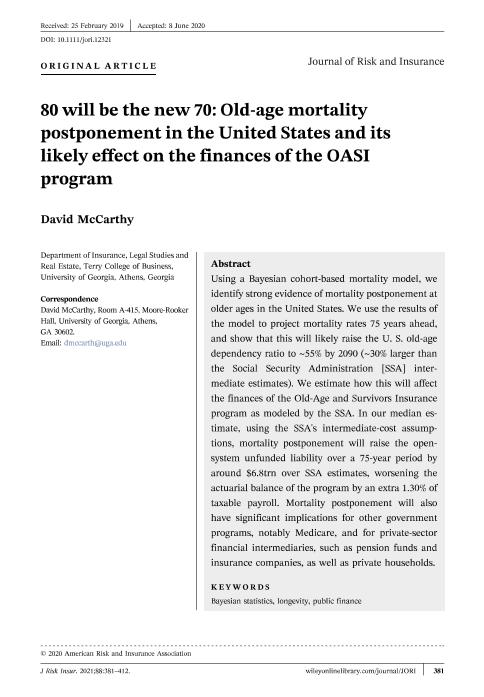80 will be the new 70: Old-age mortality postponement in the United States and its likely effect on the finances of the OASI program

Contenido multimedia no disponible por derechos de autor o por acceso restringido. Contacte con la institución para más información.

